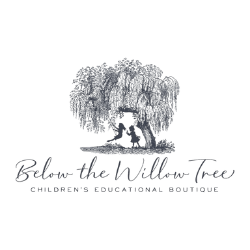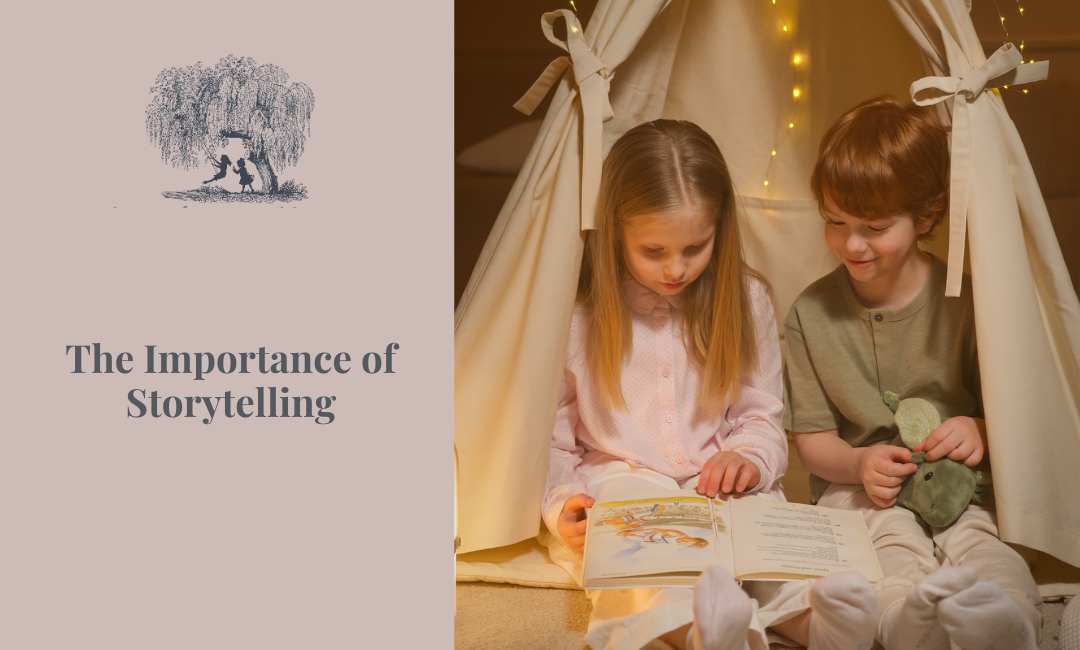Did you know there are real education and developmental benefits to reading stories with our little ones?
Reading stories to our little people is something that most parents do with their children. It is something that was a part of most of our childhoods. Storytelling is a great activity for quality time, and it is something we should incorporate into our daily routines as it has real benefits for our little people.
Before I let you know all the incredible benefits of storytelling, let’s discuss the different forms storytelling can take. It isn’t just reading books. Storytelling can look like:
- Singing Nursery Rhymes
- Singing Songs
- Looking at Picture Books
- Sharing Cultural Stories
- Reading Fables
- Storytelling with Puppets
- Sharing Personal Experiences (or Sharing Our Little One’s Memories)
For most of you, you probably already incorporate at least one of these into your day without even realising it!
So, what exactly are the benefits of storytelling?
Storytelling Improves Language Skills
Storytelling is a fun way for your little one to get exposed to hearing different words, syllables and sounds that they may not have normally hear in their normal day to day conversations. When we tell stories, we are showing our little ones how to pronounce words and they can begin to recognise how sentences should sound and be organised. When we have our little ones telling stories, their verbal language will improve as they will be attempting longer sentences than usual with unfamiliar words, and this combination is a key element to expanding their vocabulary. Taking turns is an incredible way to gain all the language benefits of storytelling.
Storytelling Boosts Memory
Having a good memory is incredibly important when our little ones are trying to learn new skills. Helping to boost their memory can help your little one once they begin their formal educational journey. Storytelling helps to boost memory as when listening to a story, little ones will have to remember the plot, characters, and other important details. This isn’t something our little one’s have a lot of experience with as most conversations with adults are usually directive or descriptive. We can further assist with boosting their memory by asking our little one’s questions about the story afterwards. This encourages them to pay attention along the way and to actively try to remember the storyline.
Storytelling Fosters Imaginative, Creative Thinking and Cognitive Skills
When we tell stories to our little ones without pictures or visual aids it provides the opportunity for them to imagine characters and settings in their own mind. This is important for their creative and imaginative thinking. Without the use of any visual aids our little ones are instead forced to think of it themselves. They also begin to ask themselves questions like, “Who did it?”, “Why did she do it?” or “Is he going to do it?”. When doing this, they will then try to figure it out themselves. This is considered critical thinking which is a skill our little ones need to develop for future learning.
Encourages Enthusiasm for Learning, Writing and Reading
Storytelling, regardless of what type of storytelling, is a fun, interactive and engaging activity for our little ones. As they grow and develop through storytelling, they will come to love storytelling and the learning that they are doing in the process. Making learning fun helps little ones to engage in education and provides a healthy perspective on learning and then eventually school.
Develops Cultural and Moral Understanding
Depending on the content of the storytelling, our little ones have the opportunity to learn valuable cultural and moral lessons. Fables are a great tool to teach morals in creative ways that little ones usually love. Sharing stories about different cultures, places and people can allow little ones to learn more about their own culture or explore cultures different from their own.
So, next time you sit down to read your little one a story or share news of what happened in your day be encouraged by the fact that these small actions have a great impact on your little one’s development.








